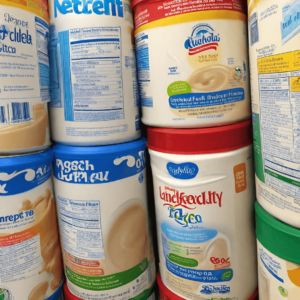Bondi Sands Sunscreen Recall: Serious Deficiency Discovered in Protection Level
Introduction
The importance of wearing sunscreen cannot be overstated when it comes to protecting our skin from the harmful effects of the sun’s ultraviolet (UV) rays. Sunscreens are a crucial element in our skincare routine as they provide a barrier against UV radiation, preventing sunburns, premature aging, and reducing the risk of skin cancer. However, recent news has brought to light a concerning discovery – a serious deficiency in the protection level of Bondi Sands sunscreen. This article will delve into the details of this recall, the potential implications for consumers, and provide recommendations for choosing a reliable sunscreen brand.
The Bondi Sands Sunscreen Recall
Bondi Sands, a widely recognized and popular sunscreen brand, issued a voluntary recall of their sunscreens after it was revealed that the products had a serious deficiency in their stated sun protection factor (SPF) level. The recall, which affects various Bondi Sands sunscreen products, was initiated due to independent laboratory testing that found the actual SPF level to be significantly lower than what was stated on the product labels.
Deficiency in Sun Protection Factor
The laboratory testing revealed that some Bondi Sands sunscreens had an SPF level as low as 15, despite being labeled as SPF 50+. This discrepancy is alarming as it means that consumers who relied on these sunscreens for adequate protection were actually receiving much less protection than they believed. This deficiency in the SPF level poses a significant risk to the skin’s health and increases the likelihood of sunburns, skin damage, and long-term consequences such as skin cancer.
Potential Implications for Consumers
The ramifications of the Bondi Sands sunscreen recall are far-reaching, with potentially severe consequences for consumers. Those who used the affected sunscreens may have unwittingly exposed their skin to harmful UV radiation, leading to sunburns, increased photoaging, and an elevated risk of skin cancer. It is crucial for anyone who has used Bondi Sands sunscreens to check the product batch numbers listed on the company’s website and discontinue use if their sunscreen is affected by the recall.
Choosing a Reliable Sunscreen Brand
In light of the Bondi Sands sunscreen recall, it is natural for consumers to question the reliability of sunscreen products. However, it is important to remember that this recall is an exception rather than the rule. There are numerous reputable sunscreen brands on the market that are rigorously tested and provide the promised level of sun protection. When choosing a sunscreen brand, consider the following factors:
Medical Recommendations
Consult with dermatologists, pharmacists, or medical professionals who can provide guidance on reputable sunscreen brands. They have the expertise and knowledge to recommend products that meet necessary safety and efficacy standards.
Independent Lab Testing
Look for sunscreen brands that undergo independent laboratory testing. This ensures that the SPF level indicated on the product labels is accurate and reliable. Brands that voluntarily provide transparency in their testing processes can be trusted to deliver on their promises.
UV-blocking Compound
The UV-blocking compound, zinc oxide, is an essential ingredient to look for in sunscreen products. Zinc oxide provides broad-spectrum protection by reflecting and scattering UV radiation away from the skin. Ensure that the sunscreen you choose contains an adequate amount of zinc oxide, preferably between 2-3 times the SPF level indicated on the product.
Conclusion
The Bondi Sands sunscreen recall serves as a reminder of the importance of choosing trustworthy sunscreen brands and remaining vigilant about product safety. While this recall may have shaken the trust of some consumers, it is essential to remember that there are reputable sunscreen brands available that prioritize consumer protection. By following the recommendations of medical professionals, looking for independent lab testing, and selecting sunscreens with an adequate amount of UV-blocking compound, individuals can continue to protect their skin effectively.
FAQs
Q1: How can I check if my Bondi Sands sunscreen is affected by the recall?
A1: You can check the product batch numbers listed on the Bondi Sands website to see if your sunscreen is included in the recall.
Q2: Can using a lower SPF sunscreen expose me to a higher risk of skin cancer?
A2: Yes, using a lower SPF sunscreen can increase your risk of skin cancer as it provides less protection against harmful UV radiation.
Q3: Are all sunscreen brands equally reliable?
A3: No, not all sunscreen brands are equally reliable. It is crucial to choose brands that undergo independent lab testing and contain the necessary UV-blocking compounds for effective sun protection.
Syphilis Cases in Australia Reach Alarming Heights in 10-Year Span, Report Finds
Addressing the Widespread Impact of Adverse Childhood Experiences on Society

